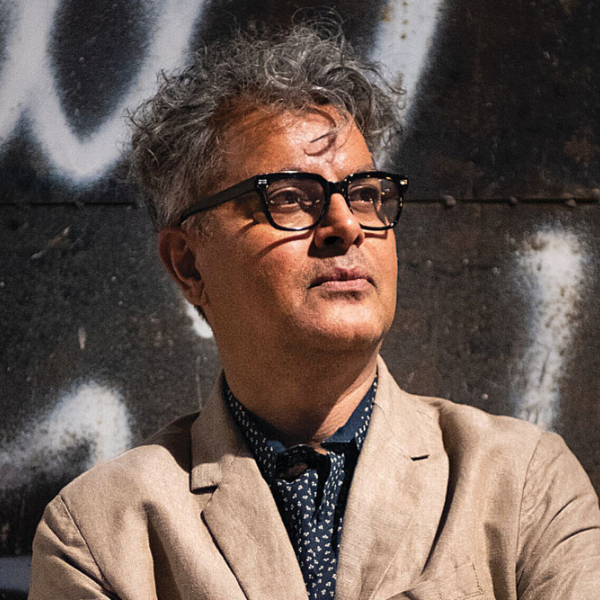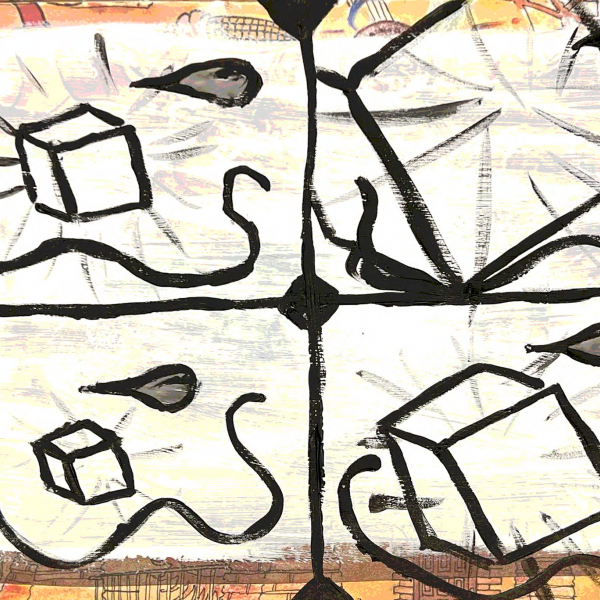by Merrill Turner, PhD Candidate in English
INTERVIEW WITH FACULTY BOOK CELEBRATION SPEAKER SIDONIE SMITH, THE MARY FAIR CRUSHORE PROFESSOR OF THE HUMANITIES; PROFESSOR OF ENGLISH AND WOMEN’S STUDIES; AND DIRECTOR OF THE INSTITUTE FOR THE HUMANITIES, UNIVERSITY OF MICHIGAN
Sidonie Smith has written extensively on women’s life narratives, with a focus on autobiography and travel narratives. Her visit to the Center of Humanities at Washington University follows the publication of her latest book, A Manifesto for the Humanities: Transforming Doctoral Education in Good Enough Times (University of Michigan Press). In her new work, Smith lays out her case for prioritizing and revitalizing graduate education in the 21st century.
The conversation about the “crisis” in the humanities and in graduate education has been a hot topic for several years — what prompted you to write this book right now?
Given the realities of a higher-than-desirable average time-to-degree and dismal job prospects for humanities doctorates, and the shifting ecology of the everyday life for academic humanists, I wanted to add my voice to those calling for the transformation of doctoral education. Across North America, deans of graduate schools, foundation officers, faculty and doctoral students are contributing to a national conversation about the humanities in higher education and about doctoral education for the next generations.
For me, repetitive talk of crisis obscures a historical perspective on change in the academy and leads too easily to a sense of enervation — and a nostalgic view of “the old” 20th-century academy. Invocation of “the crisis” is not enough now. Intervention is all. If we eschew the language of crisis and reject the call of nostalgia for “the good times” of the past, then we can get into the fray by mustering data for evidence-based counternarratives to commonplaces about the sorry state of the academic humanities. We can gain energy from all the activism in play right now dedicated to conceptualizing, advocating for and enacting interventions in aspects of the conditions noted above.
What do you see as the challenges facing both prospective graduate students entering PhD programs and the faculty members charged with mentoring these new students in the 21st century?
Faculty find themselves enervated by the intensity of their multiple obligations. Many find it difficult to take on a new kind of course or explore alternatives to the monograph dissertation with their students. But some do. A more challenging situation obtains when faculty are asked or are expected to advise and mentor students on alternative academic positions and alternative careers outside the academy. But there are networks that can be put together — mentoring can play out across a distributed network. The same difficulty pertains when programs seek ways to train doctoral students in new skills required for digitally environed scholarship. Humanities faculty, except for those identifying as digital humanists, rarely have the expertise to teach such things. Nonetheless, there are often professionals across the campus to enlist in alternative modes of training, graduate students who come in with considerable skills and tech-savvy undergraduates who can be collaborators in the classroom.
Graduate students enter programs with their ideals, their diligent scholarly habits, their trained disposition of mind and, quite likely, with a reverence for solitude. As one year passes into another, this doctoral study turns out to be not only an intellectual journey but also a trial. The challenge confronting doctoral students in this environment is how to claim a space of agency when everything seems so intense. But there are ways for students to become agents of their own pathway rather than cautious reproducers of the way it’s been done.
Yes, graduate students are constrained by the requirements of their programs and the interests and energy and commitment of the faculty with whom they work. But they can — and many do — take charge of their own learning, stewarding their intellectual passions and preparing themselves, with whatever help and guidance they can find, for the possible futures ahead. Because future faculty in humanities disciplines will require flexible and improvisational habits of mind and collaborative skills to bring their scholarship to fruition, they can seek opportunities to mobilize scholarly networks, networks that include not only mentors but other graduate students and undergraduate students. This is especially critical as programs attract and successfully mentor more diverse cohorts. If programs respond to the challenges of a 21st-century doctoral education, then students will have been prepared for careers that unfold through diverse trajectories.
— Sidonie Smith, Faculty Book Celebration speaker
You call this book a “manifesto.” How do you see it revolutionizing doctoral education in the U.S. and Canada, and, more generally, the field of the humanities?
Our ethical obligation is to ensure that entering students have information about the state of the current job market and that they are encouraged to prepare for multiple possible careers and to ensure we offer a 21st-century doctoral education instead of a 20th-century one. There are already a diversity of initiatives under way and in the making.
What I am calling for is change that is more radical. My argument for embracing more flexible dissertation options proceeds from recognition that it’s imperative to affirm the intellectual mission of the PhD as a project and redefine its paths to achievement. The current model is no longer adequate to the state of higher education, the state of the disciplines and the nature of future jobs in the profession.
The dissertation monograph remains inflexibly wedded to the traditional book-culture format. The habits of inquiry and production its conventional demands reinforce may not train doctoral students in methodologies enabled by, and skills necessary to navigate, this emergent environment. Opening opportunities for diverse models of the dissertation and diverse modes and media of its communication will signal the importance of preparation for new cultures of collegiality and new environments of scholarly inquiry and communication.
Along with that change, I call for other changes that are promising for a 21st-century education. One of them is a greater variety of projects coming out of course work, so that the seminar paper of 25 to 30 pages is not the only mode of scholarly communication in which doctoral students gain competency. Given the emergent ecology of scholarly communication in the humanities, seminars might be organized around a double format analytical project, with submission of scholarly objects in traditional print form and in a multimedia environments such as Wordpress or Scalar, a visualization or mapping project, a curation, a term-long blog edited into a publishable piece.
A second change would involve the radical move away from the standard three-credit course packaging of doctoral education, the experimentation with ensembles of one-, two-, three-credit courses and/or yearlong courses. More creativity in course design and course assignments could serve students well as they gather deepened expertise and new capacities (such as digital literacies for scholarly work and teaching, experience in collaboration, project management, grant-writing, etc.) that are going to be increasingly important to humanities scholarship and teaching.
In the introduction to your book, you talk about the community surrounding graduate students — not only colleagues and professors/mentors but also family members, partners and employers. It’s so fantastic to see you emphasize this aspect, since we often focus on how isolating graduate school can be rather than on its possibilities for collaboration and network. What led you to stress this aligning, empathetic component and how do you think it needs to function in order for graduate education to make a difference?
Writing this book, I came to grasp how insufficient it is to think only of the dyad of the graduate student and the advisor as the sustaining and consequential relationship in doctoral education. Ultimately, thinking is a collaborative affair of multiple actors, human and nonhuman, virtual and material, elegantly orderly and unruly. Networked scholars are not only connected to knowledge communities close at hand — in the room, so to speak — but also connected across the globe in an interlinked ecology of scholarly practices and knowledge economies.
Second, the lives of our doctoral students have to be thought of holistically in order to support them as they make their way to their passions and their expertise. They are embedded in multiple sets of relationships, with families, with lovers, some with children, often with bosses and employees of the places where they work. These relationships can be sustaining and distracting, fraught and pleasurable, all at once.
Third, doctoral students are members of a far larger community of humanists than the faculty and peers in their programs. As teachers, they are part of a humanities workforce; as people dedicated to the work of the humanities in the world, they are part of a larger community of allies, people outside the academy whose work, whose everyday pleasures and lasting legacies, translate the value of the humanities in the world. Instead of thinking of humanities education as an education for independence of thought, I find it more empowering to think of it as an education in the interdependency of thought.
For more on Washington University's NEH Next Generation Humanities PhD planning grant, “Cohorts, Courses, Qualifications, and Careers: Reconceptualizing the Humanities PhD at Washington University,” please follow this link.
“The Humanities After 2016: What Do We Want to Become?”
Sidonie Smith, the Mary Fair Crushore Professor of the Humanities; Professor of English and Women’s Studies; Director of the Institute for the Humanities, University Of Michigan
FACULTY BOOK CELEBRATION
February 7, 4 pm
Umrath Lounge
The year 2016 marked a dramatic turning point politically. Now, more than ever, the priority for scholars in the humanities must be to transform how we educate future generations of doctorally trained humanists for careers in the academy and throughout the larger humanities workforce.
Two additional speakers will give short presentations on their most recent books:
Ron Mallon
Associate Professor of Philosophy
The Construction of Human Kinds (Oxford University Press, 2016)
Sowande’ Mustakeem
Assistant Professor of History and African and African-American Studies
Slavery at Sea: Terror, Sex, and Sickness in the Middle Passage (University of Illinois Press, 2016)
 R E L A T E D E V E N T
R E L A T E D E V E N T
“Identity Narratives in Anti-Identity Times”
Panel Discussion
Featuring Sidonie Smith, Faculty Book Celebration keynote speaker
Rebecca Wanzo, Associate Professor of Women, Gender and Sexuality Studies
Melanie Micir, Assistant Professor of English
Erin McGlothlin, Associate Professor of German and Jewish Studies
Long Le-Khac, Assistant Professor of English
Tuesday, February 7, 12 pm
Washington University, Olin Library, Room 142
Co-sponsored by University Libraries




